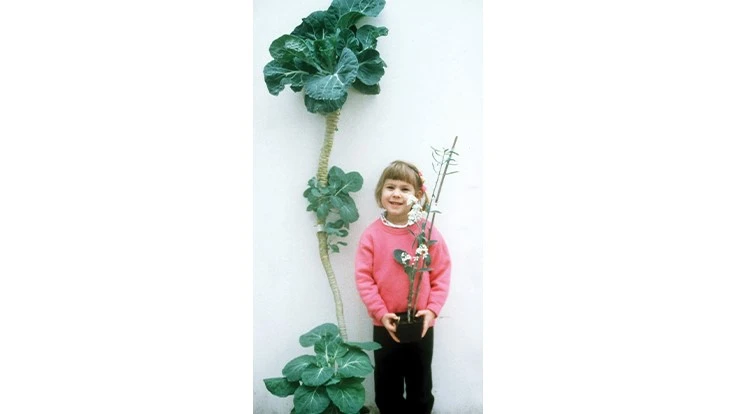

Biennials, winter annuals and some perennials require surviving the winter to set flower. Among these plants that need vernalization, as it is called, many of them set flower after experiencing cold temperatures. In the 1930s, scientists discovered that some other plants flower because they live through short days.
Among the plants with this short-day requirement is Brachypodium distachyon. The grass is native to warm Mediterranean locations where sensing winter through short days is a beneficial adaptation, says Dr. Richard Amasino, Carlos O. Miller Professor of Biochemistry at the University of Wisconsin-Madison. “You might not get a year where it gets that cold, but the days are always short in winter,” he says.
By analyzing Brachypodium, Amasino and other scientists found genes that are associated with this short-day requirement for vernalization. Their research was published in the eLife paper “A florigen paralog is required for short-day vernalization in a pooid grass."
What did the researchers find?
While some natural varieties of Brachypodium need short days to flower, others don’t, Amasino says. This fact helped the scientists be able to look at the varieties that do have genes that require short days to cause flowering, because by looking at some plants with the genes and others without, they could use molecular techniques to find the genes.
When scientists make modern discoveries through genetics, such as when they find diseases, media often announce that a single gene — proverbially “the gene” — has been discovered for that disease. Amasino explains that this type of messaging can be misleading.
“When we talk about a single gene causing something, we’re usually talking about the defect, not the normal operation,” Amasino says. “We’ve found the single-gene defect that leads to loss of short days to cause vernalization. But the system that causes short days to cause vernalization itself — it’s going to be many genes doing many important biochemical things.”

What happened in nature?
Some native plants vernalize so they don’t have to compete with summer-growing plants, Amasino says. Brachypodium likely developed the short-day response specifically to better recognize winter in the Mediterranean.
“If you’re in a Mediterranean climate, short days are a really good, reliable indicator of winter because you’re in a fairly mild climate, it might not always get that cold, but the days always get short,” Amasino says. But imagine a plant in, say, Ohio, or here [in Wisconsin]. It might be buried under snow all winter, so sensing cold is a more reliable indicator of winter if you’re up here.”
Then there’s the question of how other natural varieties of Brachypodium lost the short-day requirement. Many genetic mutations are random, Amasino says. For instance, dogs and cats make their own vitamin C, but humans have lost that ability. However, he says, the loss of short days in Brachypodium doesn’t seem as if it was so up to chance.
Short days may have caused some Brachypodium to flower too early, and a late freeze could have damaged them, Amasino says. Based on looking at how Brachypodium genes spread, he and his colleagues think some varieties of the plant lost the short-day requirement so they could grow north of the Mediterranean, where there are harsher winters.
Amasino and the other scientists plan to look for more genes to understand the process of how short-day vernalization occurs.
“In years past, we actually have learned how members of the cabbage family, biochemically, undergo vernalization. A lot of my lab’s effort over the years has been discovering many of the details of how cabbage vernalization works,” Amasino says. “It’s different in the grasses — it’s a different system — and this is just the first of a lot of discoveries, I hope, that will give more and more detail of how it works.”

Explore the March 2019 Issue
Check out more from this issue and find your next story to read.
Latest from Greenhouse Management
- Anthura acquires Bromelia assets from Corn. Bak in Netherlands
- Top 10 stories for National Poinsettia Day
- Langendoen Mechanical hosts open house to showcase new greenhouse build
- Conor Foy joins EHR's national sales team
- Pantone announces its 2026 Color of the Year
- Syngenta granted federal registration for Trefinti nematicide/fungicide in ornamental market
- A legacy of influence
- HILA 2025 video highlights: John Gaydos of Proven Winners





